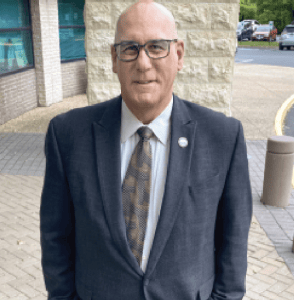The online world can be confusing and scary for people of all ages. That is why on Wednesday, Sept. 17, Secure Community Network’s Regional Security Advisor for Tidewater, Mike Goldsmith, spoke with the JCC Senior’s Club about recognizing common scams. Protecting oneself and family was the focus of the discussions, as well as how to avoid evolving, sophisticated cons.
Topics discussed included credit card information being stored online, how to freeze credit information as
a precautionary measure, and being weary of QR Codes – which can also be a trap when not familiar with the business.
When in doubt, Goldsmith advises, do not worry about being polite. It’s more important, he says, “to protect yourself and your family. If you are contacted on the phone and the caller wants sensitive information, it is okay to hang up.” He suggests instead cross referencing the call by contacting institutions such as one’s own bank or legitimate retailer. If the call is indeed legitimate, the caller will not mind the time it takes to check with the other sources.
Placing orders online can also be of concern, especially when it is with a retailer that isn’t familiar. To check a website for validity, access these free resources: http://scamadvisor.com and http://www.scam-detector.com/validator/. When going to these sites, type in the webpage in question, and it will then generate a score rating as to its legitimacy.
The local Police Department is always the first call to make if victimized by a scammer. National Elder Fraud Hotline-DOJ1 at 833-372-8311 and Virginia Adult Protective Services at 888-832-385 are also good sources for assistance.
With a little help from Goldsmith, the senior community won’t be fooled by the dark web. The seniors Goldsmith spoke with appreciated his sharing his knowledge.
To learn more about the JCC Seniors Club and its meetings, which are catered, contact Shyanne Southern at ssouthern@ujft.org or 757-452-3184.

